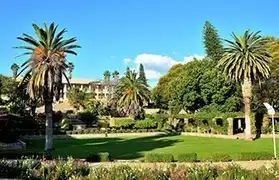Learn Afrikaans easily and fast
Learn Afrikaans fast and easily with our language course ‘Afrikaans for beginners’.
![em]() English (US]
»
English (US]
»
![af.png]() Afrikaans
Afrikaans
| Learn Afrikaans - First words | ||
|---|---|---|
| Hi! | Hallo! | |
| Hello! | Goeie dag! | |
| How are you? | Hoe gaan dit? | |
| Good bye! | Totsiens! | |
| See you soon! | Sien jou binnekort! | |
What is the best way to learn the Afrikaans language?
Learning Afrikaans can be a rewarding experience, especially for those looking to connect with South Africa’s rich cultural heritage. Start by immersing yourself in the language through music, movies, and books. This approach helps you get accustomed to the sound and rhythm of Afrikaans, making it easier to understand and speak. Interactive language apps are another great way to learn Afrikaans. They offer lessons that range from beginner to advanced levels, allowing learners to progress at their own pace. Additionally, these apps often include games and quizzes, making the learning process fun and engaging.
Engaging with native speakers is crucial for mastering any language, including Afrikaans. Try to find language exchange partners or join online communities where you can practice speaking. This real-life interaction boosts confidence and improves fluency more effectively than solo study. Taking formal Afrikaans lessons can provide a structured learning environment. Whether online or in a classroom, these lessons usually offer comprehensive language instruction, focusing on grammar, vocabulary, and pronunciation.
Flashcards are a simple yet effective learning tool. Create or download flashcards to memorize vocabulary and phrases. This method reinforces language retention and makes it easier to recall words and phrases when conversing. Writing in Afrikaans regularly is another beneficial practice. Start with simple sentences and gradually move to more complex ones. Keeping a journal or writing letters can significantly enhance your writing skills and comprehension.
Watching Afrikaans television shows and news broadcasts is a practical way to improve listening skills. It exposes you to the language used in various contexts, from informal conversations to more formal settings. Incorporating Afrikaans into your daily routine is key to becoming fluent. Label household items with their Afrikaans names, switch your phone’s language setting, or try cooking Afrikaans recipes. These small steps help solidify your knowledge and make learning a part of your everyday life.
Even Afrikaans beginners can learn Afrikaans efficiently with ‘50LANGUAGES’ through the practical sentences. First you will get to know the basic structures of the language. Sample dialogues help you to express yourself in the foreign language. Prior knowledge is not required.
Even advanced learners can repeat and consolidate what they have learned. You learn correct and frequently spoken sentences and you can use them immediately. You will be able to communicate in everyday situations. Use your lunch break or time in traffic to learn a few minutes of Afrikaans. You learn on the go as well as at home.
Learn for free...
Text book - English (USA) - Afrikaans for beginners Learn Afrikaans - First words
Learn Afrikaans with the Android and iPhone app ‘50LANGUAGES’
The Android or iPhone app ‘Learn 50 languages’ is ideal for all those who want to learn offline. The app is available for Android phones and tablets as well as iPhones and iPads. The apps include all 100 free lessons from the 50LANGUAGES Afrikaans curriculum. All tests and games are included in the app. The MP3 audio files by 50LANGUAGES are a part of our Afrikaans language course. Download all audios for free as MP3 files!








